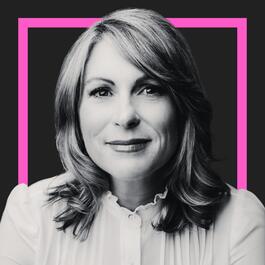
Jennifer Moss: Why Are We Here? How To Systematically Create Better Work Cultures
Burnout Recovery works better with support. UNFRIED is our small group (5 people max!) coaching program to help guide you through your recovery. Apply now! [http://bit.ly/unfried] “This isn’t some soft skill, or a ‘nice-to-have.’ It’s a must-have,” says Jennifer Moss, workplace strategist, co-founder of The Workplace Institute, and author of award-winning books on leadership. Her latest book, “Why Are We Here?,” discusses how we can use hope as an operational strategy at work, how employees can learn to bring their whole, best selves to work by meting out goals in small steps and celebrating each small win en route to the larger goal. Leaders, in turn, can learn to, rather than mitigate those efforts, be conduits to employees’ mental health, in part by being encouraging and being receptive to employee feedback. This isn’t about drumming up toxic positivity but creating a safe and openly communicative environment, which is more easily said than done when employees feel, even subconsciously, that their freedoms are being taken away and that promises have been repeatedly broken. Jennifer and host Cait Donovan discuss how to foster trust between leaders and employees and how caring for oneself creates a feeling of safety—starting at a physical level—which is the first step in opening up lines of communication, and facilitating what Jennifer calls “a culture of positive gossip.” As many as seventy percent of employees report that their managers make or break their attitude toward their jobs. Join today’s episode of FRIED to learn how to introduce a hope-based strategy into your own work environment. Quotes“We can help our employees have quick wins every day, celebrate the smaller wins, recognize that we spend a lot of time lately only celebrating and rewarding and recognizing the big project end goals, not realizing that the day-to-day ennui, the day-to-day tedium is what is burning people out. And if we just made these goals more incremental — it’s actually how you support young kids, especially kids who are neurodivergent—you chunk out the goals and adults need those same inspirational ways of working, and that’s how we make hope a strategy.” (12:29 | Jennifer Moss)“That’s where we make hope a strategy and operationalize hope. It’s first recognizing that it isn’t some sort of soft skill or a “nice-to-have,’ it’s a ‘must-have,’ that it’s real. The military abides by this rule, and it can be operationalized on a day-to-day engagement in our work and in our employees’ tasks.” (13:10 | Jennifer Moss)“You can be highly passionate about what you do, and highly driven and care about your organization and…highly engaged, but you can be similarly at the same stage of burnout. And if we can’t talk about those things, no one will know, and that’s when people quit, that’s when people hit the wall. It’s where everything just ends.” (24:33 | Jennifer Moss)“We are subconsciously rebelling because our freedoms are being taken away and we’re not necessarily aware of why we feel this dissonance.” (33:51 | Jennifer Moss) Links Connect with Jennifer Moss: https://www.jennifer-moss.com/ https://www.instagram.com/betterworkinstitute/ https://www.linkedin.com/in/jenleighmoss/ Connect with Cait: Initial Call with Cait: bit.ly/callcait Initial Call with Sarah: bit.ly/callsarahv Burnout Recovery works better with support. UNFRIED is our small group (5 people max!) coaching program to help guide you through your recovery. Apply now! [http://bit.ly/unfried] Podcast production and show notes provided by HiveCast.fm
From "FRIED. The Burnout Podcast"


Comments
Add comment Feedback